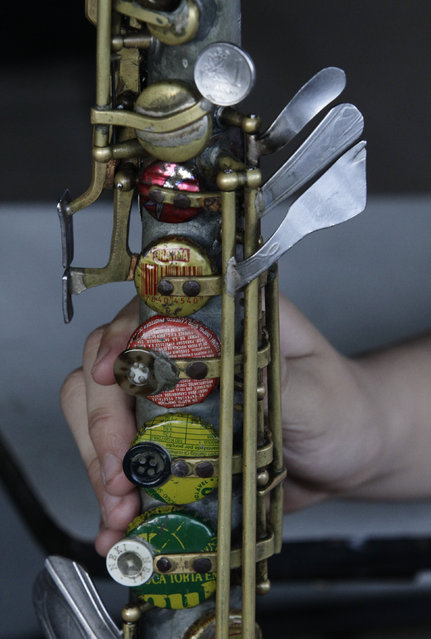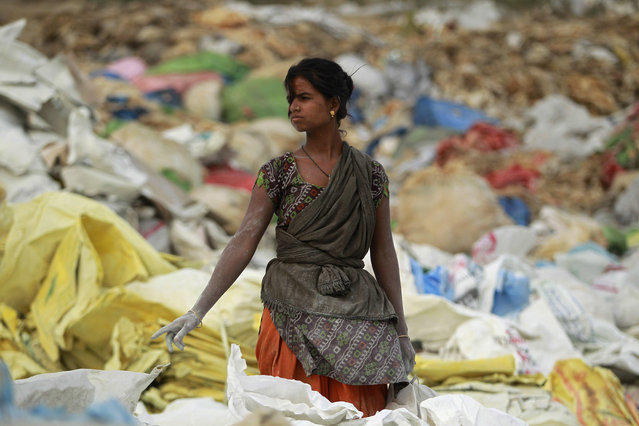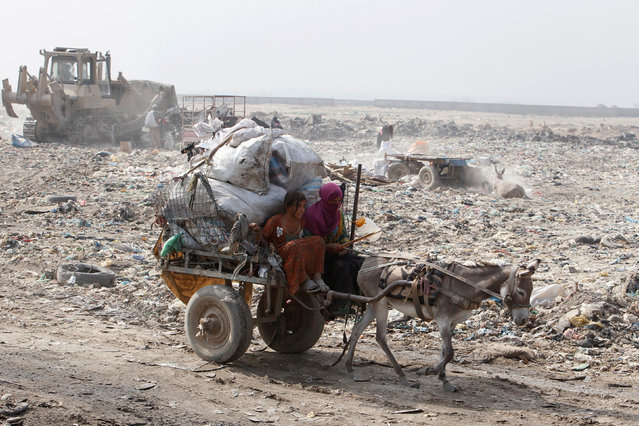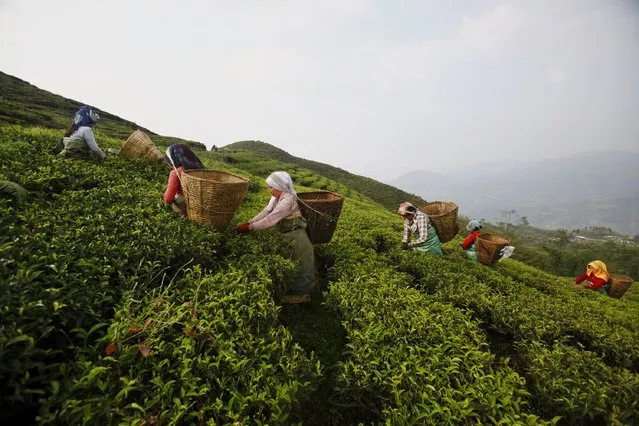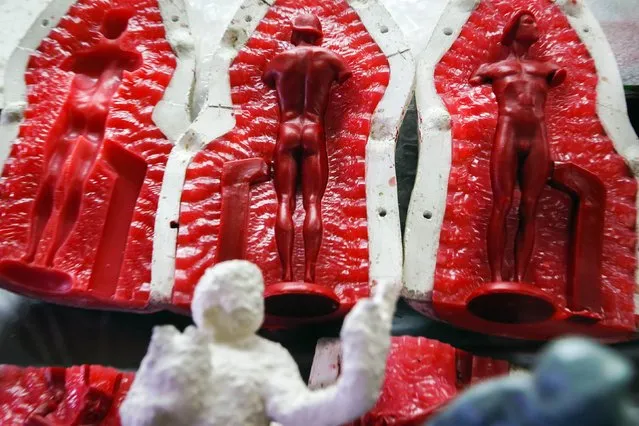
Statuettes in various forms of the lost-wax casting process are seen, including the wax figure, wax mold, shell mold, and patina coated statute of “The Actor” during a media event on the production of the statuettes for the 21th annual Screen Actors Guild (SAG) Awards at American Fine Arts Foundry in Burbank, California January 13, 2015. (Photo by Patrick T. Fallon/Reuters)
14 Jan 2015 12:28:00,post received
0 comments


